If you’re pregnant and have noticed some dark patches on your face that weren’t there before, don’t panic; it’s most probably just a case of pregnancy face mask, another condition you can add to your list ofpregnancy symptoms. The good news is that, more often than not, melasma is not dangerous and is nothing to worry your little pregnant self about. The not-so-great news is that this pregnancy mask may hang around for a little while even after birth, but we’ve got some tried and tested tips and tricks for you to get rid of it.
What is Melasma?
Melasma (from the Greek word “melas” meaning black) ishyperpigmentation or discolouration of the skin,withdark brown, greyish or tan-coloured patches covering the face. The most common areas of the face to be affected are the forehead, the upper lip, the upper cheeks, and nose, but it can also make an appearance on the lips, as well as other parts of the body. Melasma can affect anyone (even men), particularly those with thyroid disease, or women who are taking contraceptives or HRT medication. The most common instances of melasma, however, are in pregnant women. Melasma is a very common symptom of pregnancy and in this instance is known as “pregnancy mask”.

What is the Pregnancy Mask?
Pregnancy mask has many names; melasma, cholasma, chloasma faciei, the mask of pregnancy, or sunspots. The dark patches in pregnancy mask can be round or irregular like splotches, large or small and all different shades of brown or grey. They are caused by the stimulation of cells called melanocytes (the cells that transfer melanin) – the same cells that produce the dark line on the belly and darker nipples during pregnancy.
What causes Melasma?
Hormone changes in pregnancy are themain cause of melasma. Other causes are a genetic predisposition, skin irritation and sun exposure. Exposing your face to the sun can exacerbate the pregnancy face mask, as UV rays trigger and intensify pigment change, hence the melasma may take longer to subside.
Should I be concerned if I have Melasma?
Very rarely is melasma a sign of concern. If your pregnancy face mask is not accompanied by itchiness, pain, redness, raised skin, bleeding, tenderness, or extreme changes in size, colour, or general appearance, you most probably have nothing to worry about. If you have any of these other conditions, see your doctor immediately.
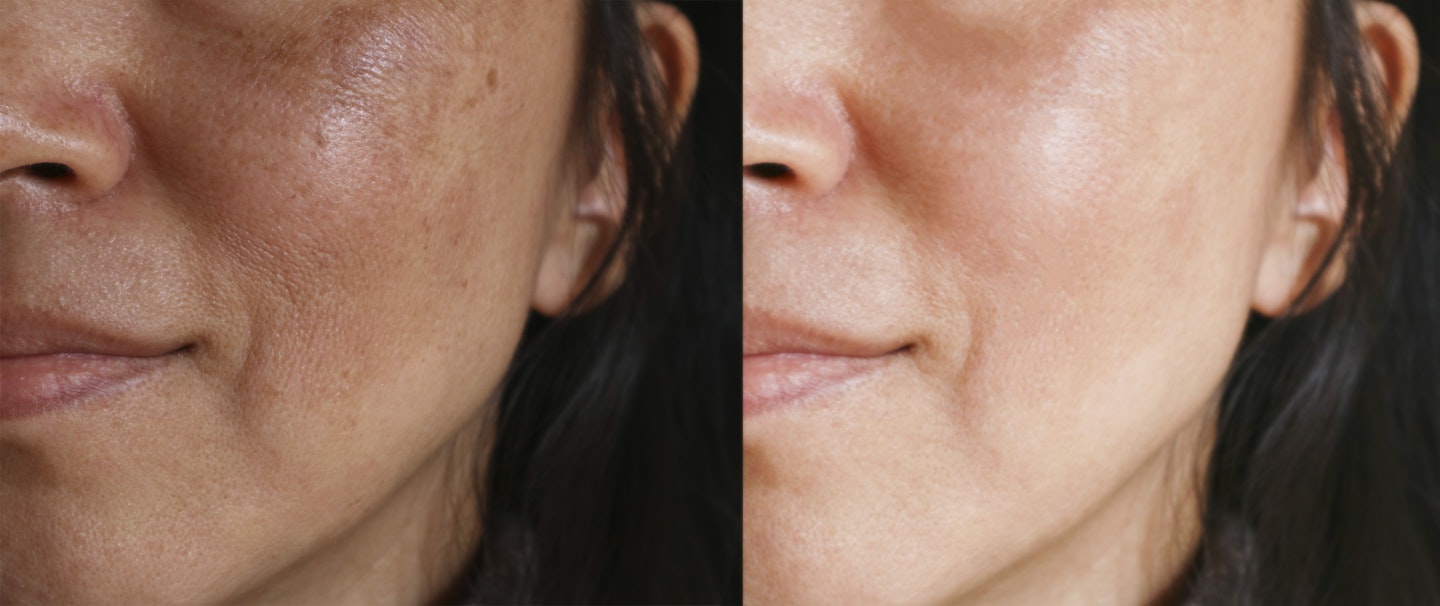
How long does Melasma last?
The pregnancy mask can last throughout the entire pregnancy and usually up to a year post-partum. In some instances, though, melasma can stay present until some form of treatment is undertaken.
Can I prevent Melasma?
It’s not certain that you will get melasma during pregnancy but if you are predisposed to getting it, there’s not a whole lot you can do to prevent it. Although exposure to the sun could worsen a pregnancy face mask and you are advised to wear sunscreen daily, sun exposure typically only makes existing melasma worse and may not actually be the cause of it. Anything that irritates the skin, like waxing, or hair-removal creams and any other strong face lotions should be avoided as they can make melasma worse.
How can you get rid of Melasma?
You can expect the pregnancy face mask to get increasingly fainter all by itself shortly after giving birth when the hormones start to go back to normal. It can fade at the same rate as the linea nigra which is usually gone within the first year. If you don’t fancy waiting for mother nature to take its course, here are a few things you can do reduce the appearance of melasma post-baby:
Melasma remedies
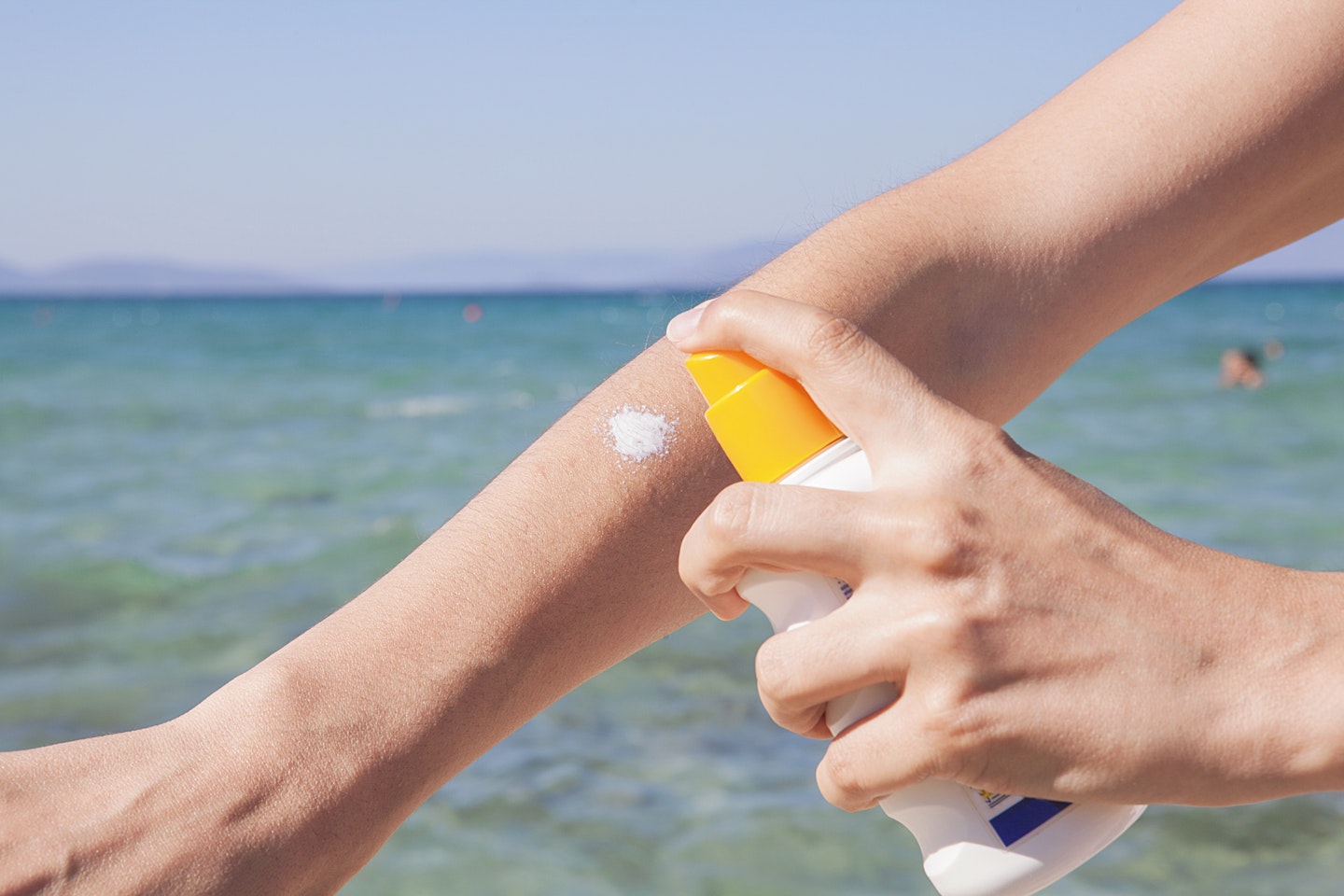 1 of 8
1 of 81. Protect your skin from the sun
It’s important to note that once you’ve had melasma, it can always come back if you do not take proper care of your skin and stay out of the sun. Even when faded, melasma can return to the same spot with excessive sun exposure so it’s imperative to wear sunscreen of 30 SPF (or higher) every day and reapply throughout the day if you are outside a lot.
It’s also advisable to wear a sun hat when outdoors to shield your face. In any event, we all know that too much sun on your face is aging, so this is just another reason to slap on the sunscreen and put on a hat. Your future self will thank you.
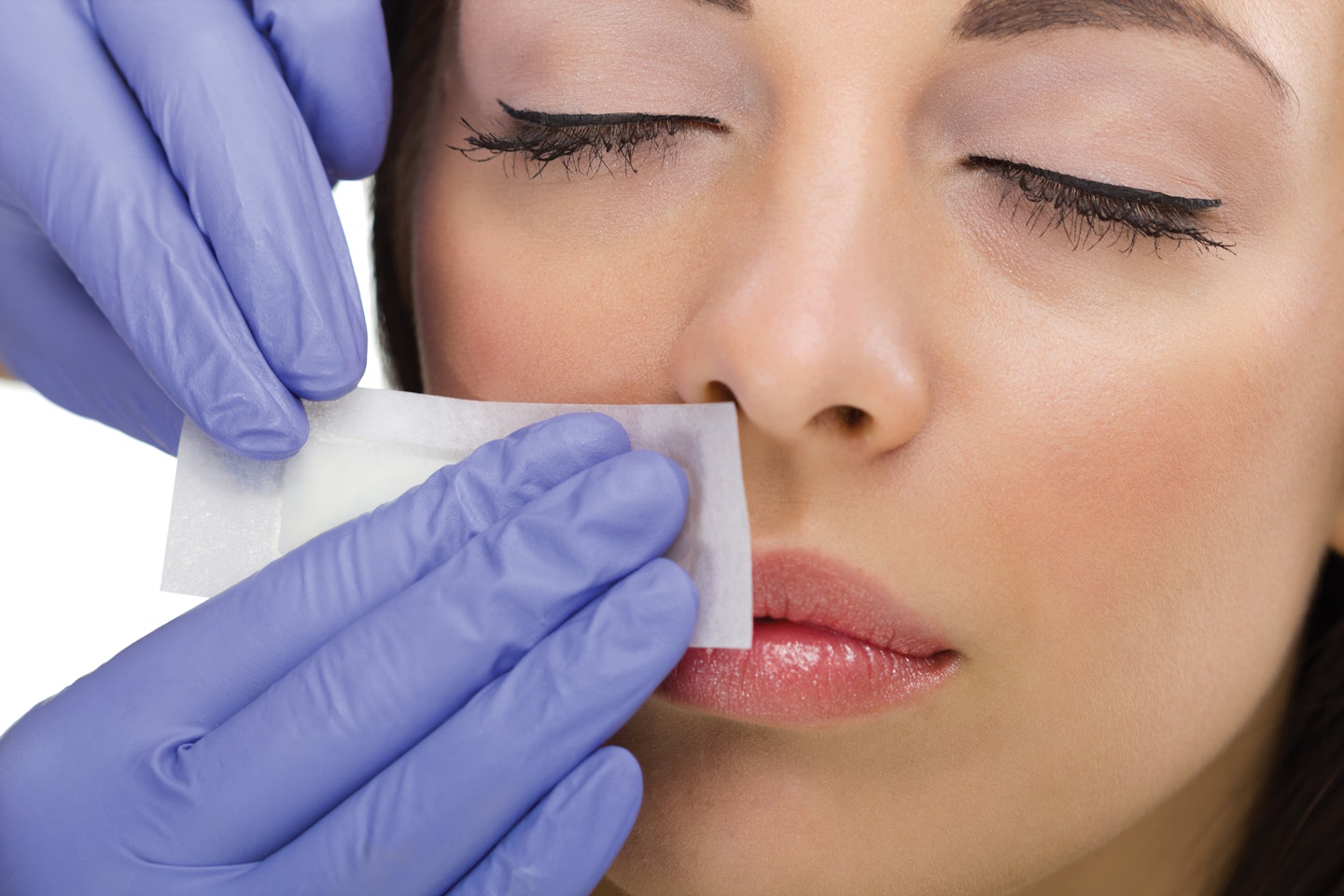 2 of 8
2 of 82. Avoid facial waxing
Steer clear of facial waxing and hair removal creams with harmful chemicals that can irritate the skin making melasma worse. Laser hair removal can also make melasma darker.
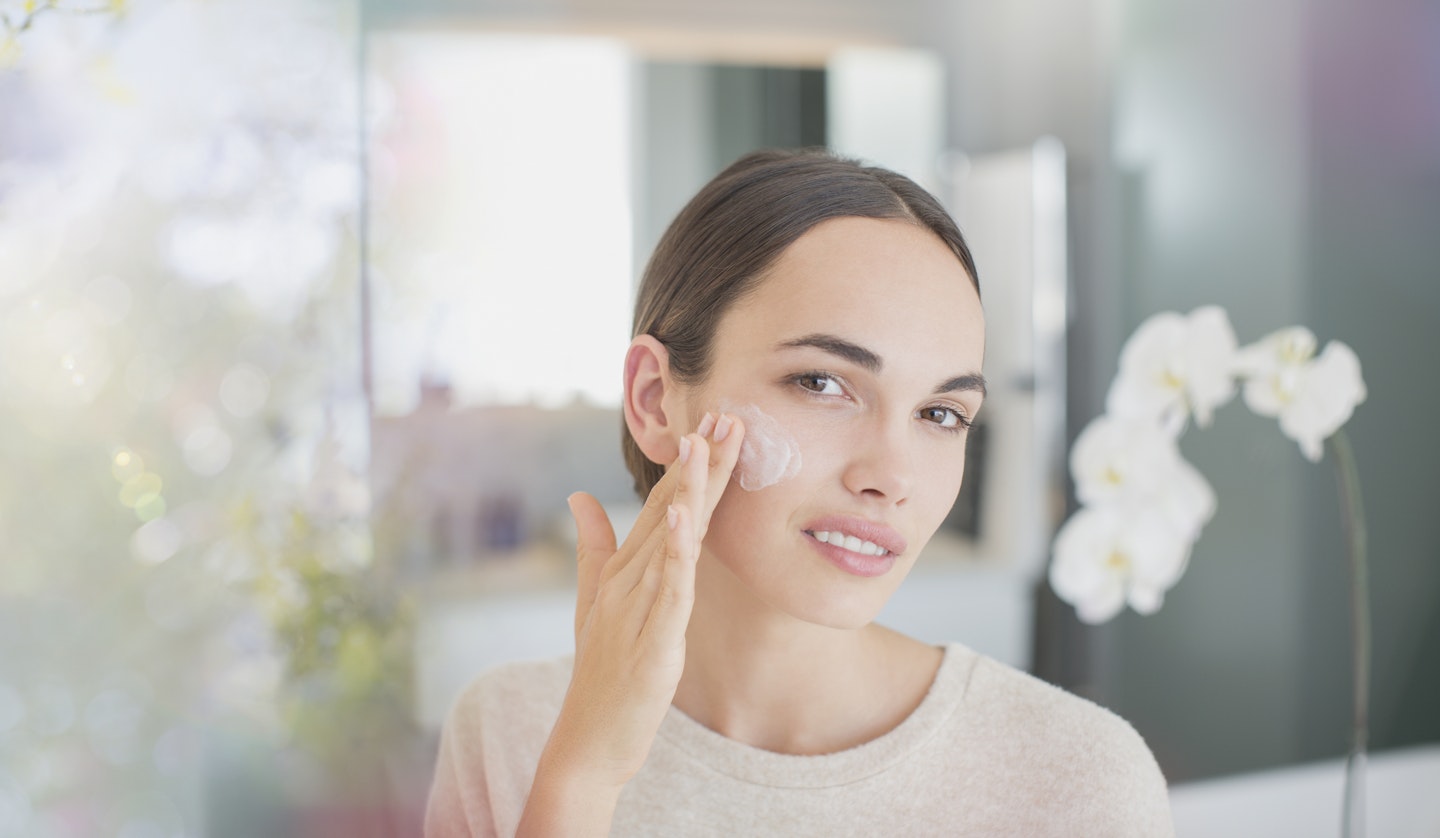 3 of 8
3 of 83. Avoid harsh chemicals
Steer clear of harsh creams, lotions, scrubs or masks that could irritate sensitive skin. Use natural or hypoallergenic face products instead.
 4 of 8
4 of 84. Visit your GP
Your doctor can prescribe skin-lightening creams such ashydroquinone or tretinoin and topical steroids, or even oral treatment such astranexamic acid tablets. Be sure to let your doctor know if you are nursing so they can find a treatment that is compatible with breastfeeding.
 5 of 8
5 of 85. Consider facial laser treatment
Facial laser treatment such as fractional laser can significantly reduce the appearance of melasma, or you could opt for a glycolic acid chemical peel. Visit a dermatologist and see what other options they can offer you, and be sure to let them know if you are breastfeeding or trying for another baby.
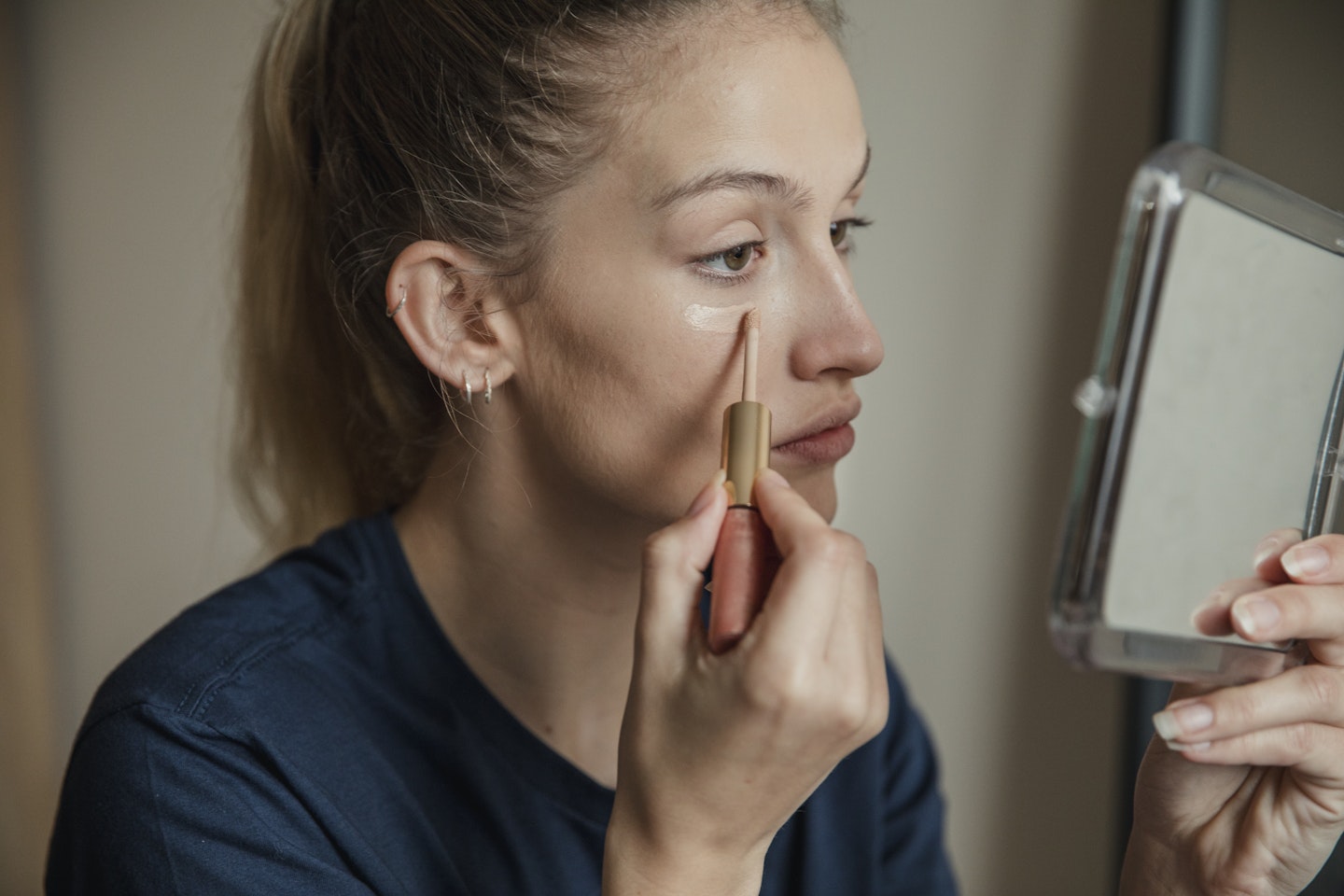 6 of 8
6 of 86. Reach for your make-up bag
ith so many great makeup products on the market, melasma can be easily covered up with concealer or foundation or a good BB or CC cream. Here aresome make-up tips for covering up blemishes from makeup artist mums.
 7 of 8
7 of 87. Take your vitamins
Whether pre- or post-natal, make sure you’re getting your daily dose ofvitamin C, vitamin A, and vitamin E, as well aszinc which have been all linked to helping get rid of those dark spots faster.
 8 of 8
8 of 88. Turn to nature
Lemon, apple cider vinegar, and grape seed extract are all completely natural skin lighteners. Although natural methods might take longer to get results, at least you’re doing your skin a solid and keeping it au natural. Apply a little bit of your preferred ingredient every day on the affected area. Dab on with a cotton ball or cotton bud, or mix a little in with your daily moisturiser.
Have you experienced Melasma? Let us know on Facebook or Twitter.
Make sure you're following Mother & Baby on Instagramfor relatable memes, inspiring stories and parenting hacks!
Join the club! Introducing our brand, spankin’ new Facebook group called #mumtribe. Simply search ‘#mumtribe’ into the search bar and meet like-minded mums, win gorgeous goodies and have some fun!
For parenting tips, tricks and advice you can trust, click here to download a free digital issue of Mother and Baby magazine.
